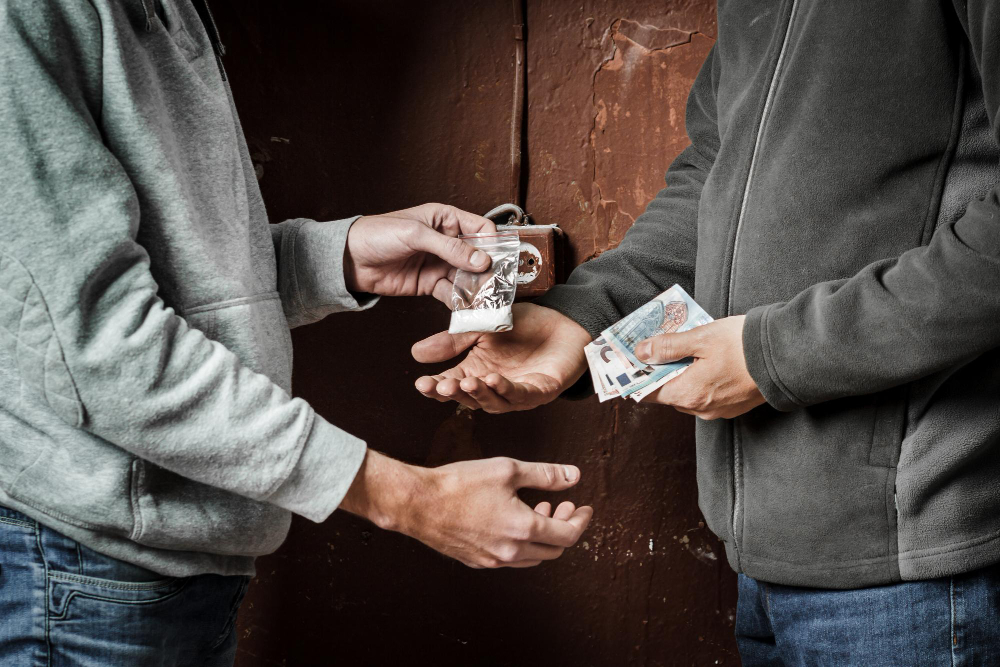This differentiation is based on criteria such as the quantity and type of drug, the intent and context of trafficking
Full article
Drug trafficking appraisal: line that delimits the fine and the crime
Drug trafficking is a topic of increasing relevance in the legal sphere, where the fine line between what constitutes a fine and what is considered a crime is often debated. The assessment of the magnitude of drug trafficking is crucial to differentiate between these two legal categories, and establishing clear criteria and a differentiation table can be fundamental in the legal framework.
The legal dilemma of drug trafficking
In most legal systems, drug trafficking is significantly criminalised and considered a serious crime due to its social, health and safety implications. However, not all cases of drug trafficking fall under the same category, as there are situations that could be considered as minor infractions beyond the borderline of crime.
The key issue facing legal systems is to determine where to draw the line between a fine and consideration as a crime, based on the quantity and type of drugs involved, as well as other circumstantial factors.
It is essential to establish a clear set of criteria to discern when drug trafficking is classified as a fineable offence and when it is a criminal offence. Although these criteria may vary according to each country's legislation, certain common factors can be considered:
Quantity of drugs involved
- Minimal: Usually associated with minor fines or administrative action.
- Moderate: Can be considered as a determining factor in the classification between fine and offence, depending on the type of drug and the circumstances.
Type of drugs
- Mild or recreational substances: In certain cases, the trafficking of drugs considered less dangerous may be inclined towards minor fines.
- Dangerous substances or hard narcotics: Generally tend to be considered criminal offences, regardless of the quantity involved.
Intent and context
- Personal use or small-scale trafficking: May be considered for fines, especially if the individual does not have a criminal record.
- Patterns of trafficking on a large scale or for profit: Generally considered a serious offence and can lead to more severe penalties.

Table differentiating between a fine and a drug trafficking offence
The following table provides a schematic guide, although the exact application may vary according to country-specific legislation:
| Drug Quantity | Type of Drug | Intent and Context | Classification |
|---|---|---|---|
| Minimal amount | Mild recreational substances | Personal use, no trafficking pattern | Administrative fine |
| Moderate amount | Moderate substances | Personal use or small-scale trafficking | May be fine or crime |
| Significant amount | Dangerous substances | Large-scale trafficking pattern, lucrative | Serious crime |
This table is only a general guide and may vary according to jurisdiction and other factors. Judges consider each case individually, taking into account the particular circumstances, background of the defendant and other relevant details before making a ruling.
Clearly defining the boundaries between a fine and an offence in drug trafficking cases is crucial in the fair and effective application of the law. It provides clear guidance for both citizens and law enforcement authorities, avoiding ambiguity and ensuring that penalties are commensurate with the seriousness of the offence committed.
In addition, a precise distinction between fine and offence allows for a more efficient administration of judicial and police resources, focusing them on cases that pose a significant threat to public safety and discouraging the over-criminalisation of individuals with minor offences.
In short, the assessment of drug trafficking requires a clear dividing line between what is considered a fine and what is criminalised. This differentiation is based on criteria such as the quantity and type of drug, the intent and context of the trafficking. A differentiation table provides a general guide, but it is crucial that each case is assessed individually to ensure fairness in law enforcement and the protection of society.
Comments
Related links
Main menu












